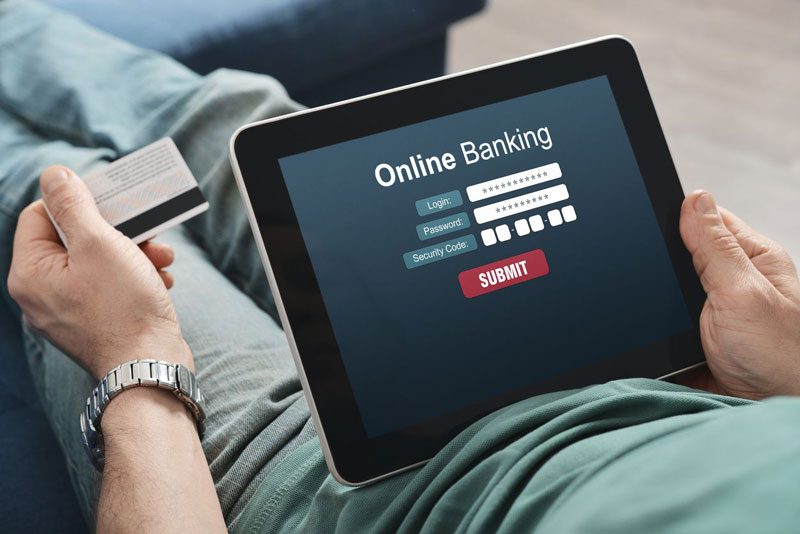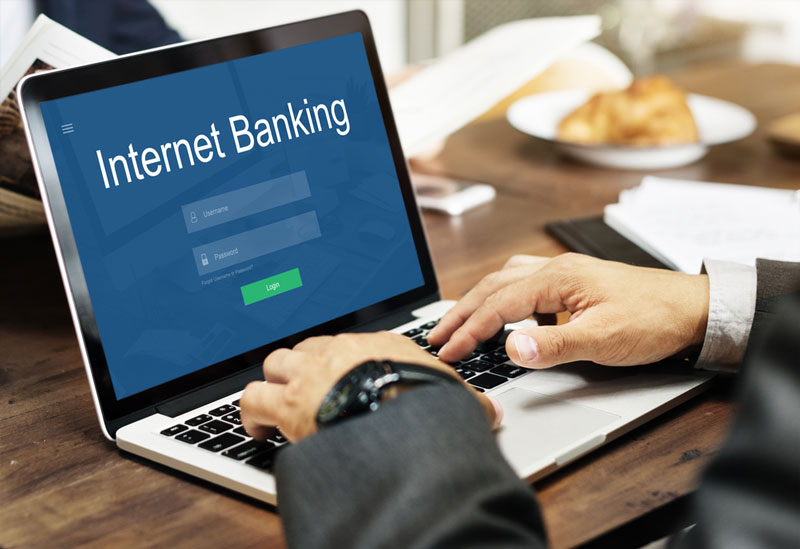Customers may use internet banking to access a wide range of financial services, including deposits, transfers, and bill payments. There is a wide variety of online banking options accessible at nearly every financial institution, including desktop and smartphone apps.
If you have a computer or a mobile device, you may access and manage your bank account using online banking. A bank branch isn't necessary, and you can conduct all of your banking duties at any time, even if it's beyond normal business hours.
Become familiar with the advantages of internet banking and how it may save you time, money, and hassle.

An Overview of Online Banking
Thanks to internet banking, consumers no longer need to visit a bank office to do most of their basic financial operations. Whether at home, at work, or on the road, they may accomplish all of this at their convenience.
It is necessary to have an Internet connection and a bank or debit card to do online banking. To use the service, customers must register for their bank's online banking service. They'll need to come up with a unique password before they can sign up. They will utilize the service for all of their banking needs after that.
Benefits of Online Banking
Online banking has the benefit of simplicity. As long as a customer has an Internet connection, basic banking operations such as bill payments and transfers between accounts may be carried out at any time, from any location.
The convenience of online banking is undeniable. If the two accounts are kept at the same financial institution, funds can be moved immediately. Consumers can create and terminate various accounts online, including fixed deposits and recurring deposit accounts that often pay higher interest rates.
Customers may also keep a careful eye on their accounts and prevent unauthorized access. Early identification of fraudulent conduct may be prevented by accessing banking information around the clock.
Online Banking's Drawbacks
Online banking novices may encounter difficulties while attempting to complete their first transaction. For this reason, some customers choose to conduct their transactions in person at a bank teller's desk.
Large sums of money can't be accessed online by customers. He may withdraw a certain amount from an ATM, but he will still have to visit a branch to collect the remainder.
The security of online banking accounts is always increasing, but this does not make them immune to being hacked. Online banking customers are urged to utilize their data plans rather than public Wi-Fi networks.
A stable Internet connection is also required for online banking. Sometimes it's tough to tell if a bank transaction has been correctly handled because of connectivity concerns.
E-banks
Some banks have no physical location and operate only online. Customer support is handled by phone, email, or online chat for these banks. Mobile banking is becoming more common as Wi-Fi and 4G services become more widespread. A desktop PC can also be used to do the task.
Consumers can use ATMs at other banks and retail outlets if these banks don't have direct access to their ATMs. Additionally, they may recoup some of the ATM costs that customers have been charged.
Online banks can pass on large savings to their customers since they don't have to maintain physical branches. Additionally, they provide greater interest rates on bank accounts.
Traditional vs. Online Banking

Even if having a bank that mostly or completely allows you to manage your account online might have significant advantages, conventional banks offer their perks as well.
Higher Rates of Interest
A higher yearly interest rate, known as the "annual percentage yield" (APY), is typically offered by online-only banks on your deposits. They can transfer part of the savings to you because they don't have the overhead of brick-and-mortar banks.
Some conventional banks' internet divisions, on the other hand, may provide competitive rates. A reduced interest rate on loans, known as the "annual percentage rate," can also be found with online banks (APR).
There are several advantages to having a higher interest rate on your savings account. As a counterbalance, lower interest rates are a plus when taking out a loan because they cut your overall repayment cost. It's a good idea to look about and compare online bank rates to traditional bank rates, but you'll nearly always get a better deal online.
Reduced Charges
For the same reasons that conventional brick-and-mortar banks charge higher interest rates, online-only banks often charge cheaper costs. If you don't keep a particular amount of money in your account, you may be subject to fees.
A person-to-person transaction
An online bank may not be the best option for those who often deposit or withdraw big sums of money because of the time and effort it takes to see a bank teller. If you need to deposit more than the daily limit set by your bank, you may need to go to an ATM or branch office. This may be tough if your bank doesn't have a widespread network of free ATMs or a local branch.
Technology Concerns
You may face a high learning curve if you're unfamiliar with technology while banking online. If your computer or the bank's system is down, you may have to postpone a pressing transaction until the issue is resolved.
If you have a problem with customer service or want to learn about other lending options, a face-to-face encounter at a bank may be the best option.
Concerns about Safety
There are several advantages to internet banking over traditional banking. A direct deposit of your paycheck means you won't have to worry about someone snatching your check out the mailbox. Furthermore, no one can steal your account information from a check you write since bank systems never save the information you enter.



